Bone ended 10 years ago. The self-published series created by Jeff Smith that combines the epic fantasy genre with the humor of the comic strips was first pulished in 1991, after a long genesis. In the beginning, Bone was fully managed by Smith himself, who in addition to the writing and the drawing was also responsible for the the graphic, the lettering and whole distribution. After several delays, Smith admitted that he could not take care of the business side and also write the comic book, so with his wife Vijaya Iyer he founded Cartoon Books in order to have Iyer take over the economic aspects of the project. From that moment, sales went higher and higher and the Bone phenomenon was born.
After Bone, Smith went on to write and draw Shazam! Miniseries and his personal works RASL and the webcomic Tüki. Now, he sat down with Fumettologica to talk about the series ending and his feelings toward the comic book industry.

Bone ended 10 years ago. What did you feel when you drew the last page?
Elated and a bit tired…I had been up for about a week working on that last batch of pages! But it was exciting to reach the goal I had been heading towards for 13 years.
Now that you have a little bit of prospective, how do you rate the end of the story? Have you ever re-read it?
I have reread it, and like it. I see no reason to second-guess it.
Of those 13 years of stories, is there something you would do differently? And what’s the thing you’re most proud of?
Actually, just finishing it still astounds me.
Was there any moment in which you thought you wouldn’t get to the end or that you had lot your creative impulse?
In twelve years a lot can happen, and does. But during that time I never lost interest in the story itself or in making comics. There were times when the industry would change or even collapse. Self-publishing is an inherently risky business, and I remember the Ghost Circles part of the story was not too popular when it was serialized, and sales dipped. There were a couple of times when Vijaya and I wondered if we could carry on, but we muddled through somehow. In fact, it was the creative impulse that got me through those difficult times.
You have been very open and had an ongoing dialogue with fans and readers, you actually used readers’ suggestions into the story (best example: the cow race). That’s one side. Then, there’s the critic. In general, do you look at reviews? Do they matter to you? Because comic book is a very different medium than, let’s say, movie or music. You can have an awful movie that sells very well so you don’t care about the reviews. But in comics I don’t see a lot of bad works that sells well, so in a way, in this business, critics still matter. Maybe I’m wrong, but I was curious how an artist cope with perceived failure of success that maybe doesn’t match with your own perspective on the work.
I’m starting to notice a direction in your questions, friend. But to answer you, yes I look at all reviews. And they do matter. But here’s the trick: a lot of people in our little corner of pop culture have strong feelings and do not like anything that threatens their beliefs or their particular flavor of comics. You can’t believe everything that’s written about you, good or bad. That being said, not everyone who criticizes my work has an agenda, so I read to see if there is something that rings true – – and occasionally it does. Usually it is something that I secretly suspected wasn’t quite right, and a good critic will catch it. In those cases, I make changes when the comic goes to print in the graphic novel.
You are an all-around artist, you write, you draw, you edit. In such a hybrid medium as comic book, what’s the most important things to you, words or images?
Both. The story is communicated through both, and if one or the other doesn’t work, the thing is dead.

We all know your personal taste of comic books from the past. Do you still read many comic books? Regarding on the “reviews” issue, is there any book that was critically acclaimed but did not make a big impression on you?
Mostly I read cartoonists who write and draw their own comics. The kind of work you’d find at small press shows like SPX or MOCCA, or TCAF. Genre isn’t as important to me as their chops. I was the guest editor of the 2013 edition of Best American Comics. I don’t know if you’ve seen that, but it’s an honest reflection of my tastes. The only thing missing are the classics, like Mickey Mouse, Popeye, Krazy Kat, and Terry & the Pirates, which I read in all the beautiful reprint books being put out these days. As for someone receiving praise for their work, well, I don’t begrudge anyone their success.
What were you thinking when you finished Bone? Yes, you did have some story idea in mind (for RASL and others) but Bone was at point like a long marriage that was going to end and you suddenly began to date others again after many years. How did you live that period?
Your analogy is apt. I started playing around with RASL years before BONE was finished. Sometimes, especially near the end, I would feel a twinge of guilt when I worked on RASL – almost as if I was having an affair or something! But of course, you have to do your pre-production and get the next thing ready. Which, as it happens, wasn’t quite ready when I completed BONE, so when DC called and asked me to do a SHAZAM miniseries, I accepted and took the extra time to prepare RASL.
Bone is one of the most challenged books in school libraries. That’s mind bugging. Why do you think that happened? Because of the all-ages nature of the beast that cannot be compartmentalized or classified easily?
I think so. Partly it’s the visual nature of comics that they can be quickly glimpsed and taken out of context, and partly, thanks to Scholastic, the book is on the radar in a lot of homes, schools, and libraries.

Your career actually started in the animation industry, you had a company that produced shorts and ads. In several occasion you spoke about the on year hiatus on Bone to give a shot at screenwriting. Ever thought about directing?
As you said, I used to own an animation studio with a couple of buddies of mine, and in the beginning of the film industry’s interest in BONE, I would have enjoyed every aspect of making an animated film. But after all these years, I’ve learned that I’m not built for Hollywood. I’m far too used to trusting myself, having an idea, and just doing it.
Your books are deeply grounded in the hero’s journey. Is it an aspect that you put on purpose in your books or it just comes out on its own?
I am drawn to that kind of story, always have been. The genesis of the idea that became BONE was a desire I had as a kid to see a really long Uncle Scrooge adventure that had consequences, with a beginning, middle, and end. So to answer your question, much of it comes naturally, but the artist in me knows the value of symbolism and I use it.
You have always put out your works with alternative ways of publication. Self-publication before, now web comics with Tuki. What fascinated you about this new form of comic?
What is new is the potential audience. Anyone anywhere can see TUKI the moment it goes live if they want. For free. Unfortunately, that’s the down side as well. Vijaya and I still depend on the printed book to pay the bills.
You’ve been an independent artist for many years. How do you see the comic book industry, as an outsider?
I’ve seen a lot of changes, mostly for the better. We have so many women making and reading comics now. We have kids, young adults, and families spending a weekend at a comics festival. More and more comic shops are brightly lit and engage with their customers and neighbors. These are all great things that would have been shocking twenty-five years ago. Graphic novels are accepted as literature by critics and booksellers. When I look at the industry as an outsider, that’s what I see: An art form coming out into the light after decades of being in the shadows. Unless you mean what do I think of the New 52?
So… What do you think of the New 52?
No clue, I’ve never read an issue.


